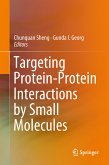In this monograph, the importance of fluctuations for biological reactions is discussed from various points of view. Understanding the biological reactions at the molecular level is one of the major targets in many scientific fields, including not only basic biology but also physics, physical chemistry, and medical science. One of the key factors in the process is "fluctuation". Thermal energy causes biological molecules to be in constant fluctuation even while they are carrying out their biological functions. How do biological systems overcome the thermal fluctuations to realize the physiologically relevant reactions? Scientists in a number of fields-physics, chemistry, pharmacology, medicine, and others-have contributed chapters that elucidate the nature of the fluctuations and the relationship between fluctuations and biological functions. The fluctuations discussed in this volume are detected by the transient grating method, nuclear magnetic resonance, X-ray diffraction and scattering, and computer simulation, among other methods. The book presents various results of the studies of fluctuations in biological processes that were obtained with these methods by the leading scientists in their fields.
Dieser Download kann aus rechtlichen Gründen nur mit Rechnungsadresse in A, B, BG, CY, CZ, D, DK, EW, E, FIN, F, GR, HR, H, IRL, I, LT, L, LR, M, NL, PL, P, R, S, SLO, SK ausgeliefert werden.









